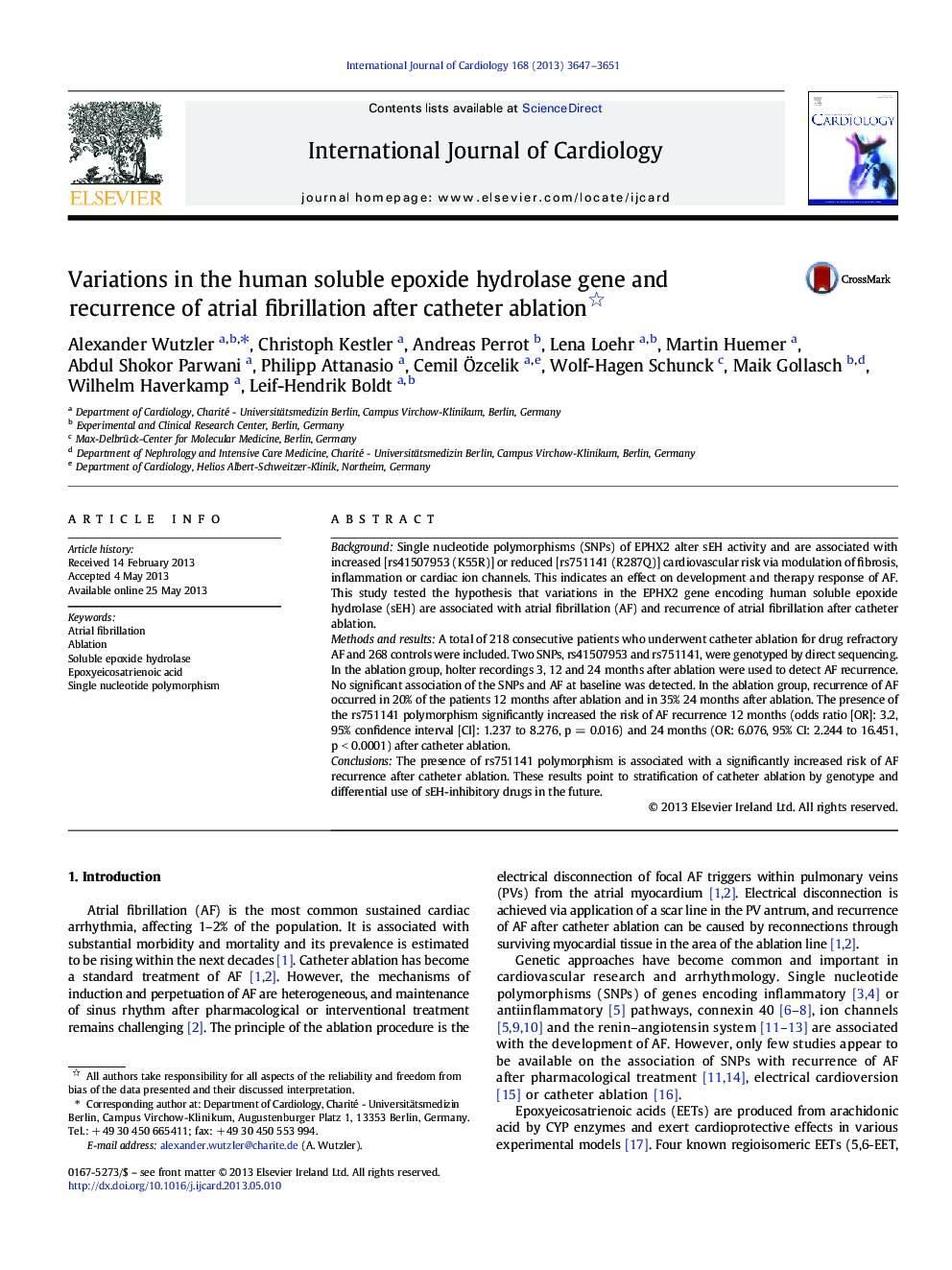| Article ID | Journal | Published Year | Pages | File Type |
|---|---|---|---|---|
| 5973813 | International Journal of Cardiology | 2013 | 5 Pages |
BackgroundSingle nucleotide polymorphisms (SNPs) of EPHX2 alter sEH activity and are associated with increased [rs41507953 (K55R)] or reduced [rs751141 (R287Q)] cardiovascular risk via modulation of fibrosis, inflammation or cardiac ion channels. This indicates an effect on development and therapy response of AF. This study tested the hypothesis that variations in the EPHX2 gene encoding human soluble epoxide hydrolase (sEH) are associated with atrial fibrillation (AF) and recurrence of atrial fibrillation after catheter ablation.Methods and resultsA total of 218 consecutive patients who underwent catheter ablation for drug refractory AF and 268 controls were included. Two SNPs, rs41507953 and rs751141, were genotyped by direct sequencing. In the ablation group, holter recordings 3, 12 and 24 months after ablation were used to detect AF recurrence. No significant association of the SNPs and AF at baseline was detected. In the ablation group, recurrence of AF occurred in 20% of the patients 12 months after ablation and in 35% 24 months after ablation. The presence of the rs751141 polymorphism significantly increased the risk of AF recurrence 12 months (odds ratio [OR]: 3.2, 95% confidence interval [CI]: 1.237 to 8.276, p = 0.016) and 24 months (OR: 6.076, 95% CI: 2.244 to 16.451, p < 0.0001) after catheter ablation.ConclusionsThe presence of rs751141 polymorphism is associated with a significantly increased risk of AF recurrence after catheter ablation. These results point to stratification of catheter ablation by genotype and differential use of sEH-inhibitory drugs in the future.
